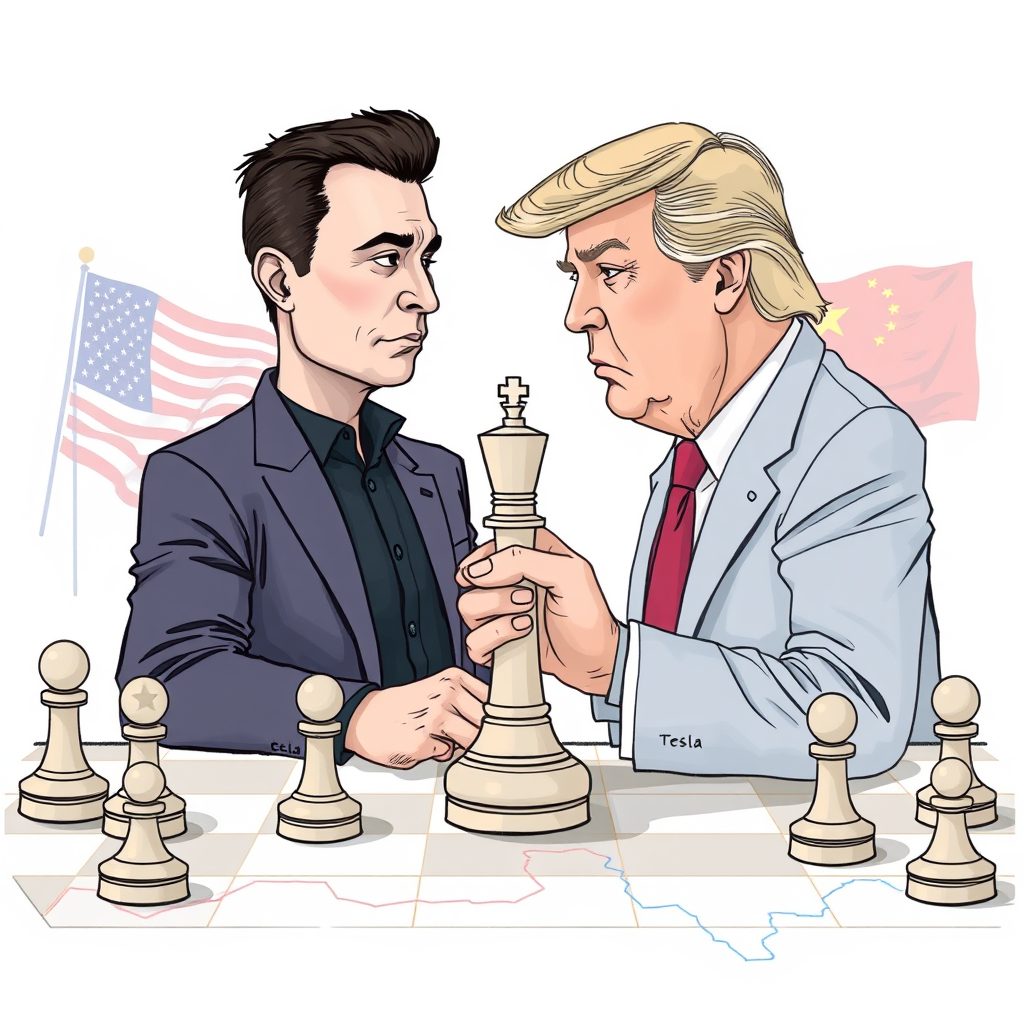Musk Urges Trump to Reverse China Tariffs

A growing rift between President Donald Trump and Elon Musk, a key advisor and major financial backer, has emerged over the administration’s escalating tariffs on Chinese imports. Reports indicate Musk directly appealed to Trump to reconsider the levies – recently increased to potentially 50% on top of existing 34% taxes – but failed to sway the President’s stance.
The disagreement is particularly notable given Musk’s significant investment – nearly $290 million – in supporting Trump’s last presidential campaign and his subsequent appointment to lead cost-cutting efforts within the US Department of Government Efficiency (DOGE). He is expected to depart that role in the coming weeks.
Musk, CEO of Tesla, has long been a vocal opponent of tariffs, arguing they are detrimental to businesses with global supply chains, particularly those operating in both the US and China. He previously filed a lawsuit during Trump’s first term seeking to overturn tariffs on Tesla’s Chinese imports. The current dispute appears to be exacerbating concerns about slumping demand for Tesla, with the stock price down over 38% this year and closing at $233.29 per share after Monday’s market downturn.
Musk’s opposition isn’t limited to private appeals. He subtly signaled his disagreement by posting a video on X featuring the late economist Milton Friedman advocating for the benefits of international trade cooperation. He also publicly expressed his desire for a “zero-tariff situation” between the US and Europe during a conversation with Italy’s Deputy Prime Minister Matteo Salvini.
The disagreement has escalated to public jabs, with Musk criticizing Peter Navarro, the White House advisor behind the aggressive tariff plan, questioning his educational background. This prompted a defense of Navarro from White House spokesperson Karoline Leavitt, who emphasized Trump as the ultimate decision-maker.
This public break with Trump marks the most significant disagreement to date between the President and one of his key advisors, according to The Washington Post. While Musk’s financial support and initial advisory role were undoubtedly valuable to Trump, this situation highlights the potential for friction when differing economic philosophies collide, even within a seemingly aligned political partnership. It raises questions about the long-term implications for both Tesla’s performance and the broader US-China trade relationship, and whether Trump will prioritize political loyalty or economic advice in shaping his trade policy.